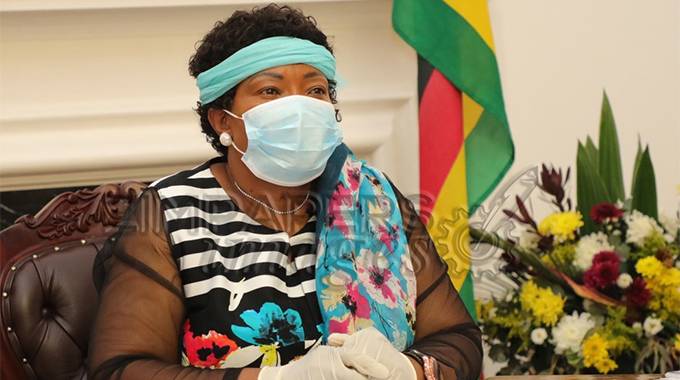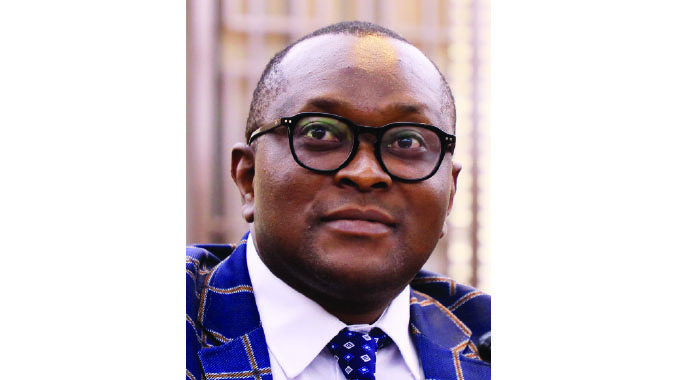First Ladies vow to end infertility stigma

Tendai Rupapa Senior Reporter
FIRST Ladies in Africa have joined hands in fighting stigma attached to infertility while also committing to addressing chronic illnesses such as diabetes and cancer which continue to affect a number of women on the continent.
Speaking during the inaugural virtual initiative summit organised by an international philanthropic arm, Merck Foundation, the First Ladies were unanimous on the need to strengthen focus on fertility issues.
First Lady Auxillia Mnangagwa is the Merck “More than a Mother” ambassador in Zimbabwe and the country’s health ambassador.
The “Merck More than a Mother” initiative aims to empower infertile women through access to information, education, health and by changing mindsets.
Yesterday, Amai Mnangagwa actively participated in the meeting and further outlined what the country has achieved so far through her partnership with Merck Foundation.
She is working flat out to improve the country’s health sector by unlocking specialised training opportunities for 117 local doctors in oncology, diabetes and fertility issues, among many other disciplines of need.
The specialised training is in partnership with Merck Foundation and during yesterday’s meeting, Amai Mnangagwa said the training of doctors will add significant value to women health and will transform the landscape of fertility and reproductive health nationwide.
“I am very happy to see that Merck Foundation is strongly committed to advancing public healthcare sector across Africa, this is very critical to our countries in the light of current pressure on our healthcare sector now more than ever,” she said.
“I am pleased to inform you that more than 100 local young Zimbabwean doctors will be provided by one-year online diploma from South Wales university, UK in the fields of Diabetes, Cardiology, endocrinology, Respiratory medicines, Acute Medicines and sexual and reproductive medicines in addition to online three-month Diabetes master course, one-year Oncology fellowship and fertility specialist and embryologists training programmes in India.”
She added; “I am particularly excited as ‘Merck more than a Mother’ ambassador, that 11 candidates graduated and some will be enrolled in fertility specialists and embryologists training programme in India which will resume after the lockdown ends. Moreover, more 10 young doctors from different provinces in Zimbabwe will be enrolled to the online one-year diploma and two-year master degree of sexual and reproductive medicines, from South Wales, UK.
“This will add significant value to women health and will transform the landscape of fertility and reproductive health nationwide. Together with Ministry of Health and Child Care, we will follow up to ensure they are making a good use of this great opportunity so that they can help women in general and infertile couples in particular across the country.”
Recently, over 100 Zimbabwean journalists from across the media divide underwent rigorous training to equip them with skills to handle infertility issues as part of a broad-based approach to end stigma on the subject.
Organised by Amai Mnangagwa and Merck Foundation, the workshop was coordinated by experts in various disciplines.
Addressing her fellow First Ladies yesterday, Amai Mnangagwa said the media need to get knowledge about infertility first for them to report positively adding that if media take the lead in the de-stigmatisation of infertility, everyone else in the country will accept the emerging paradigm shift.
“We launched the ‘Merck More than a Mother’ media health training in partnership with Merck Foundation and Ministries of Health and Information to train journalists on the international standards and media ethics for reporting sensitive issues like infertility in Africa. This will benefit the journalists in understanding the infertility issues in African communities and to learn the best media practices to cover it with the aim to break its stigma and sensitise our communities through all media outlets,” she said.
The Angel of Hope Foundation’s patron, has been working on a number of initiatives to give infertile couples hope, urging the nation not to discriminate against people with fertility challenges, but to accept them with love and dignity.
Her sentiments were supported by Niger First Lady Aïssata Issoufou Mahamadou who concurred that there was need to bring a mindset change and look at infertility in a different way.
She said the media has the capacity and ability to break the stigma around infertility in communities adding that women bear the brunt in most cases.
“The media plays an important role in creating an informed society. It is important to convey accurate information to the people about infertility. I appreciate initiatives by Merck Foundation and through our partnership, as a nation we have implemented fertility programmes and we also trained journalists so that they disseminate proper information. As a continent, it is important to fight stigma surrounding infertility,” she said.
The First Lady of Namibia, Monica Geingos chipped in, saying fertility issues were greatly affected by the Covid-19 pandemic adding that the issue calls for attention on the silent dangers that the pandemic has raised. She pledged her commitment to empower infertile women in her country as well as to fight the cancer vice that is tearing livelihoods in Africa.
Mrs Fatima Maada Bio, the First Lady of Sierra Leone, thanked the Merck Foundation for working with the African First Ladies in advancing public healthcare sector across Africa.
“We want to thank Merck Foundation for their timely intervention and we will utilise the courses that you extended to our medical personnel. Together with my fellow African First Ladies, we are making an impact in the health sector in our countries,” she said.
Merck Foundation chief executive Dr Rasha Kelej paid tribute to various work being done by the First Ladies in their countries and stated the foundation’s commitment to assist in ending the challenge of infertility which she said will be addressed through capacitating health care services in Africa.
The foundation’s chairman of board of trustees, Professor Dr Frank Stagenberg- Haverkamp, raised the need to improve health care in African countries to cope with the demands of the Covid-19 pandemic which he said were disastrous.







Comments